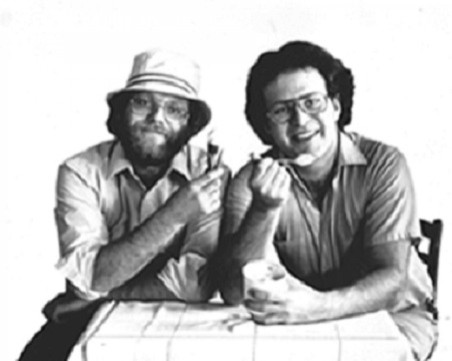Ben Cohen Of Ben & Jerry's Is Stamping Money Out Of Politics

Howard Zinn once said that small acts, when multiplied by millions of people, can change the world.
Ben Cohen is hoping that’s the case. While Cohen, the co-founder of Ben & Jerry’s, is primarily known for the ice cream empire that bears his name, on Oct. 17 the progressive activist kicked off a cross-country journey with one goal in mind: getting money out of politics.
“I had always thought a big part of the problem with our government is that it’s influenced by all this money. Because we don’t have public campaign financing, corporations and wealthy people can basically pay politicians to pass laws that benefit their interests,” Cohen said in a phone interview. “They’re not giving money out of the goodness of their hearts.”
That’s why Cohen started Stamp Stampede. The campaign, which launched in July, aims to publicize the issue of money influencing the American political system by urging people to stamp their dollar bills with campaign finance reform messages such as “Money is not free speech” and “Corporations are not people.” The idea, Cohen said, is to flush thousands, if not millions, of marked bills into circulation to promote a constitutional amendment that would overturn the U.S. Supreme Court’s Citizen United decision, as well as other rulings that say political expenditures are protected by the First Amendment.
While the website StampStampede.org has been selling stamps with those messages -- at cost -- for months, last week the campaign received a fresh breath of life with the launch of the Amend-O-Matic Stampmobile. The customized van, designed to carry a dollar bill on a roller-coaster-like track and into a stamping device that adorns it with one of four slogans, hit the road on Tuesday for a cross-country tour that Cohen said will essentially act as a petition on steroids.
“It’s about using money to get money out of politics. I’ve been calling it monetary jiu-jitsu,” Cohen said.
Although Cohen will be on hand for some events, the Amend-O-Matic will primarily be staffed by two organizers from Move to Amend, a coalition devoted to amending the Constitution to say money is not a form of protected speech.
No matter what political issues a person is passionate about reforming -- education, the environment, health care -- Cohen said the root cause of those problems can all be traced back to the overwhelming influence of money in the political system. Because the Federal Reserve estimates the average bill stays in circulation for 4.8 years (or 1,750 days), Stamp Stampede calculated that even if the typical bill a participant stamps is already halfway through its life, it could potentially reach 875 people (assuming it changes hands once a day).
If that’s the case, if one person managed to stamp just one bill a day for a year, those marked bills could reach about 300,000 people. If 100 people did it, they could reach a stunning 30 million people. And it's perfectly legal -- technically, it is only illegal to destroy paper currency or deface it to the point that it is no longer recognizable.
“Despite how broken our political system is, when there is an aggressive grass-roots support to make something happen, Congress usually does something,” Cohen said. “Stamping money is something anyone can do.”
In its landmark Citizen’s United decision, the Supreme Court held that it is unconstitutional for the government to restrict independent expenditures by corporations and unions because those expenditures – i.e.. money – is a form of constitutionally protected speech. A subsequent decision by the U.S. Court of Appeals in Speechnow.org v. FEC authorized the creation of super-PACs, political action committees that can accept unlimited contributions from individuals and corporations but cannot make direct contributions to candidates.
These Super-PACs can still use their unlimited funds to independently support the candidate or party of their choice as long as they do not coordinate directly with campaigns. Since the start of the 2012 presidential campaign, those outside spending groups have spent at least $374 million on television advertisements and other efforts to defeat or elect a particular candidate, last month surpassing the $301 million spent during the entirety of the 2008 election.
This is not a partisan issue. Several polls show Americans of all political affiliations disapprove of the Citizens United decision and believe there should be a limit to corporate and union political spending. But so far there has been no serious congressional effort to reform the campaign finance system.
The Amend-O-Matic, which will be making its way through Colorado and Kansas this week, is scheduled to host money-stamping events across the nation until December, when it will formally end its tour in Florida. But Cohen said he is hoping to keep the vehicle on the road for at least two years.
“Almost anyone on the street can you tell you money isn’t free speech and corporations aren’t people,” Cohen said. “I want this to get to a point that people are embarrassed if they don’t have stamped money in their wallet.”
© Copyright IBTimes 2025. All rights reserved.





















